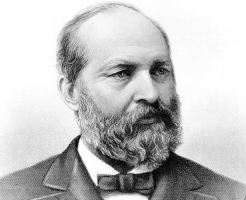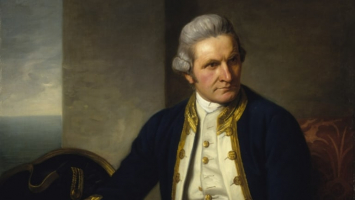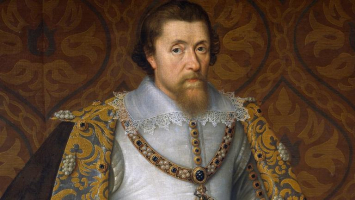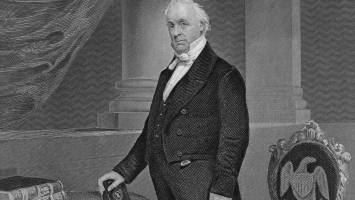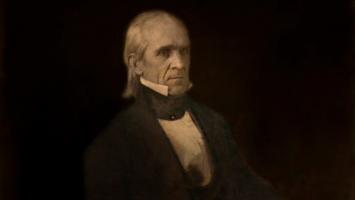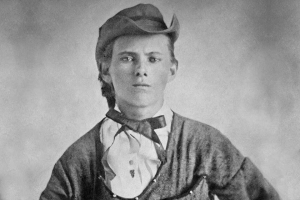Top 4 Interesting Facts About James Watt
James Watt was one of the most well-known figures of the Industrial Revolution. James Watt's influence can still be seen in many modern inventions. This ... read more...article presents the top interesting facts about James Watt.
-
Starting the topic interesting facts about James Watt, you may not know Watt was much honored in his own time.
Watt was highly regarded during his lifetime. In 1784, he was elected to the Royal Society of Edinburgh, and in 1787, he was elected to the Batavian Society for Experimental Philosophy in Rotterdam, the Netherlands. In 1789, he was elected to the Smeatonian Society of Civil Engineers, an elite group. The University of Glasgow bestowed the honorary Doctor of Laws degree on him in 1806. In 1814, the French Academy made him a Corresponding Member and a Foreign Associate.
The Bank of England announced on May 29, 2009, that Boulton and Watt would appear on a new £50 note. The design, which features the two industrialists side by side with images of Watt's steam engine and Boulton's Soho Manufactory, is the first to feature a dual portrait on a Bank of England note. On the note are quotes attributed to each of the men: "I sell here, sir, what all the world desires—POWER" (Boulton) and "I can think of nothing else but this machine" (Boulton) (Watt). Watt is the second Scot to appear on a Bank of England note (the first was Adam Smith on the £20 note issued in 2007). It was announced in September 2011 that the notes would go into circulation on November 2nd.
He was one of seven inaugural inductees into the Scottish Engineering Hall of Fame in 2011.
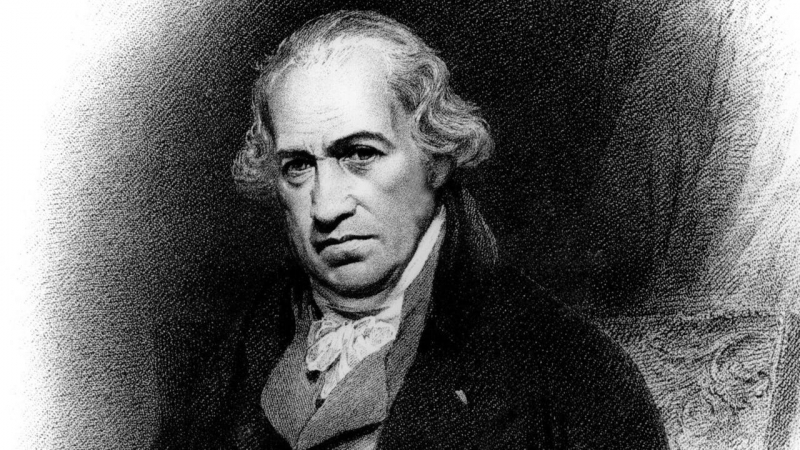
Photo: The Frame Blog 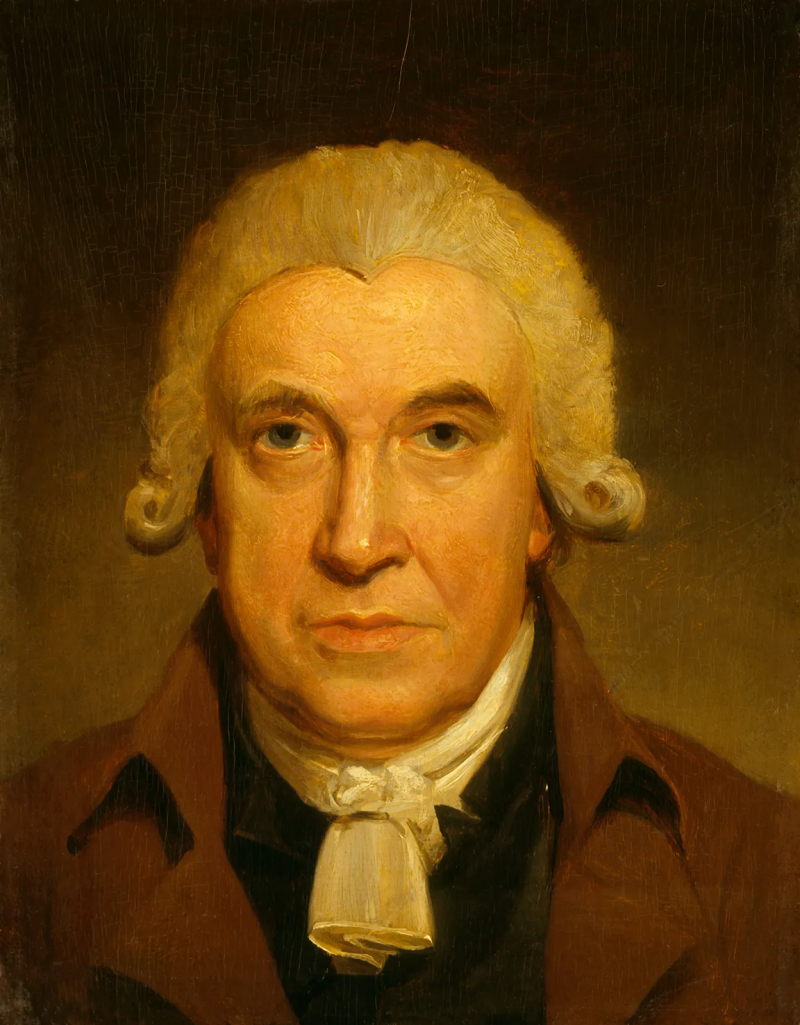
Photo: Encyclopedia Britannica -
James Watt was born in Greenock, Scotland, in 1736. He came from a prosperous family. His grandfather, Thomas, was a math teacher, and his father, James, was a shipbuilder. Agnes Muirhead, his mother, was well-educated. He learned to read from her, while his father taught him arithmetic and writing.
In high school, James excelled in mathematics, science, and engineering, but his language skills were less impressive. His health was frequently poor, so he spent much of his time at home, where he relaxed by watching fishing boats return to port and large sailing ships arrive with tobacco from the Americas. Ships like these would one day be powered by engines rather than sails, thanks to his inventive mind.
James dropped out of university at the age of eighteen, after his mother died and a ship sank, putting a heavy financial burden on his family. Instead, he studied as a scientific instrument maker in London, specializing in mathematical and nautical instruments. Within two months, he had surpassed the skills of others who had been in training for two years. Workers at his father's shipyard in Greenock had previously remarked on his exceptional hand skills. After a year in London, he found work repairing instruments for the astronomy department at Glasgow University.
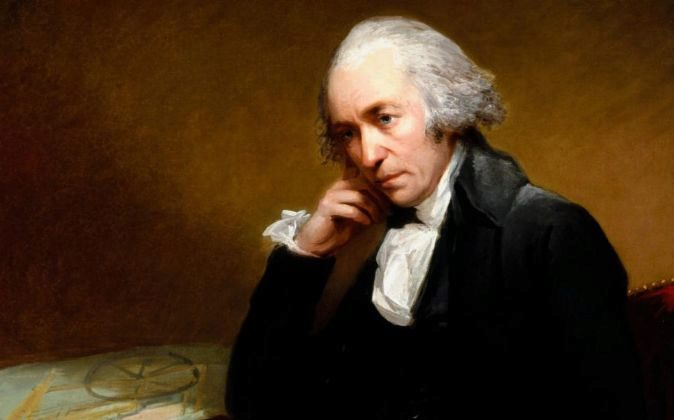
Photo: Expansión 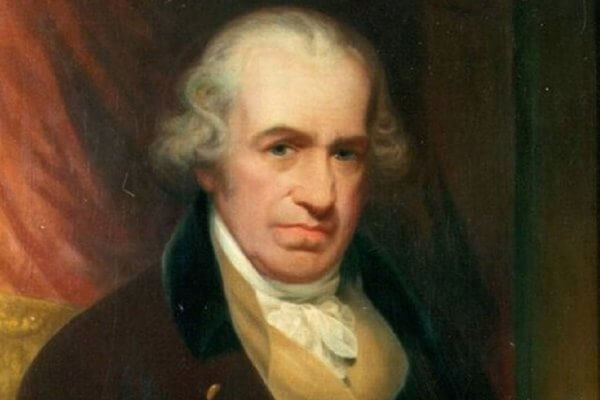
Photo: CurioSfera-Historia.com -
Watt was asked to repair a model Newcomen engine owned by Glasgow University in 1763. After much experimentation, he discovered that the majority of the energy was being wasted by repeatedly heating and cooling the engine cylinders. Watt discovered the solution while strolling through Glasgow's Green Park two years later: by creating a separate cylinder to cool the steam, you could keep the rest of the engine piston's temperature constant.
In 1776, Matthew Boulton, the owner of the Soho Manufactory works near Birmingham, saw the genius in Watt's design and purchased a share of his patent. With Boulton's help, Watt was able to perfect his engine at some of the world's finest ironworks. Watt then spent time in Cornwall installing pumping engines for copper and tin mines whose owners wanted to cut fuel costs. However, he was not a businessman.
Boulton and Watt's partnership was enormously successful and lasted for approximately 25 years, only to be continued by their sons Matthew Robinson Boulton and James Watt Jr-one of the interesting facts about James Watt.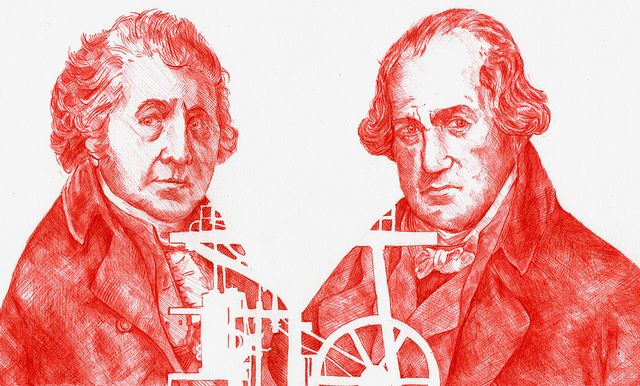
Photo: Pinterest - Boulton and Watt 1774 
Photo: Olde Good Glass - Boulton & Watt -
James Watt was a Scottish chemist, inventor, engineer, and musical instrument maker who was born in 1736. Watt decided at the age of 17 that mathematical instrument making was his passion, so he went to university and then found a master instrument maker to train him in the craft. Having said that, James Watt was a great inventor who made significant contributions to modern machines and the industrial revolution.
While he is best known for inventing the steam engine, his list of accomplishments extends far beyond this single revolutionary invention. Watt coined the term horsepower to describe the amount of power used by his steam engine. One horsepower represents 746 watts of energy or 550 foot pounds per second. Watt developed a rotary engine to replace less efficient piston engines in factories, based on the concept of a steam-powered engine. Watt also invented the tachometer, which was used to measure the rotational speed of a steam engine's shaft. This was not only used in steam engines at the time, but it is now used in moving vehicles as well. Watt's invention of the micrometer enabled him to make precise measurements between geographic features after modifying a telescope to see distance. Watt's next project was to develop a new method of bringing clean water into populated areas. With his flexible water main, he was able to accomplish this. Watt is also credited with inventing the first copy machine.
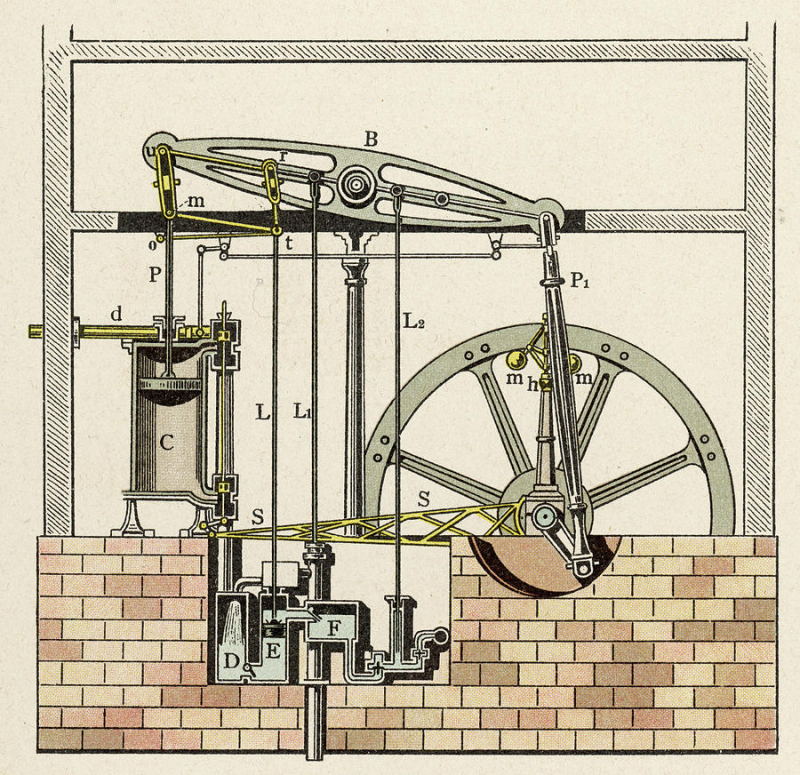
Photo: ScotClans - 1769 – James Watt Patents the Steam Engine 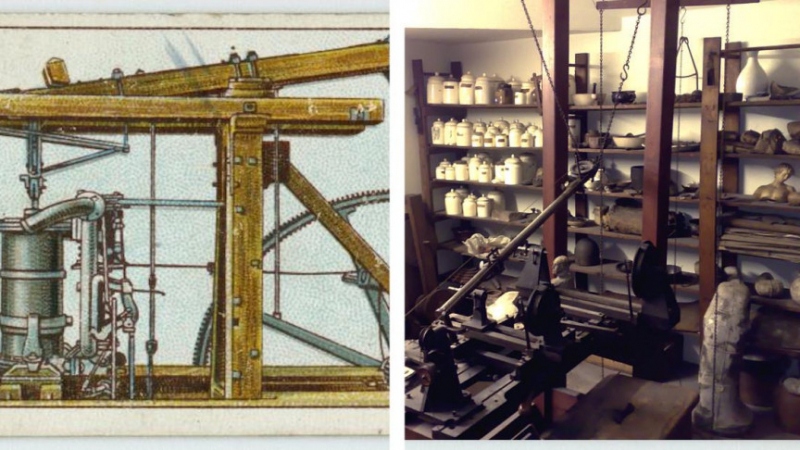
Photo: Interesting Engineering - Inventions from James Watt that Changed the World







